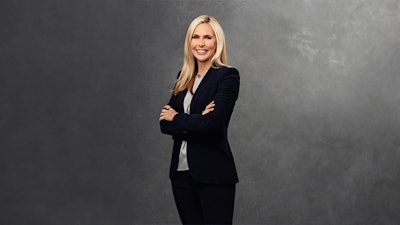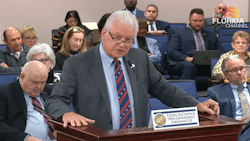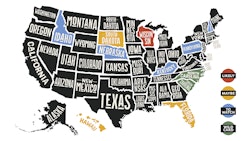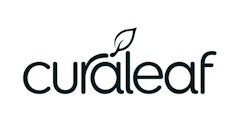
In November, Cannabis Business Times sat down in Las Vegas with Trulieve CEO Kim Rivers to discuss some of the company’s most important endeavors in 2023 and top priorities for 2024. In this conversation, Rivers explains the motivation behind Trulieve—one of the largest multistate cannabis companies in the country—filing an amended tax return and its effort to recover 280E money paid to the IRS and which markets are most important for the company in 2024.
Noelle Skodzinski: Can you talk about the amended tax filing and the strategy behind claiming you do not owe 280E taxes?
Kim Rivers: We filed in October amended tax returns for 2019, 2020 and 2021, and we had to file by that date, or we would’ve lost the ability to claim basically a refund for 2019. And so it was a straight refund claim. You’re just basically saying, “We don’t believe that we owe you this money. We made an error in our filing, so please send us back $143 million. Please and thank you.” [Laughs]
Just to be clear, up until this point, we have made all estimated tax payments, fully loaded, is how we’re characterizing it, with 280E and our regular tax payments all the way through the second quarter of 2023.
Then when 2023 becomes due, we will have paid partial fully loaded payments for 2023, we’ll file that return and say, “Hey, by the way, we’re not paying these last two quarters of estimated payments because we don’t believe we owe you.” And so then this will really hit in 2024, right when we file that return, and we’ll be filing that return saying, again, we’re taking the position that we do not owe 280E taxes.
So, best case scenario, the IRS says, “Oh my gosh, thank you for bringing this to our attention. We agree with you. Here are checks, and we’re going to start sending you money.”
Second scenario would be IRS says, “No, we disagree with you. We believe that you owe it.” To which point we would then roll out our legal strategy and take it to court. At that point in time ... everybody will be able to see exactly the specifics in terms of what is behind the claim.
NS: So you’re not sharing that rationale now?
KR: There’s no reason for us to do that, and it would not be to our advantage from a positioning perspective—we don’t want to harm our chances of success ultimately by doing that.
Michelle Simakis: Looking ahead to 2024, are there any markets you feel are most favorable to expansion or that you’re most excited about?
KR: I think for us, we are very, very, very focused on Florida and then Pennsylvania. When you look at those two markets combined for us, we have 150 stores that we need to flip [to adult-use if a bill or ballot initiative passes], which is not nothin’ as we sit here today.
I mean, I think when you look at other medical programs that have transitioned into adult use, I think that the most anyone had in their portfolio at the time was less than 20.
I’m a big Florida State Seminoles fan. We have the ball at the 10, and you want the touchdown. You don’t want to have to settle for the extra points, and you dang sure don’t want to fumble the ball. Right? What causes fumbles a lot of times is you’re thinking about the next play. You’re not focused on the down that’s at hand, and we have to focus on the down that’s at hand.
MS: How are you preparing for the potential of adult-use expansion?
KR: We need to optimize and make sure that our retail platform is in the best posture that it can be to service the customer in the current environment, but then of course, in an increased demand environment, as well.
We’re about to launch a new website. We’re about to launch a new loyalty program. We’re looking at our tech stock and our communications channels to consumers. … Making sure that our systems can handle that at a different level of scale. And then all the way back through our demand planning and how is our forecasting model going to change. It’s a soup to nuts effort that has already kicked off.
And again, by the way, that benefits our business regardless of what happens with adult use. And it benefits our business, not just in Florida, but across the country. Finding those opportunities where we can make investments and we can lean in in a “regardless” situation is something that we continue to be focused on.























